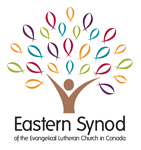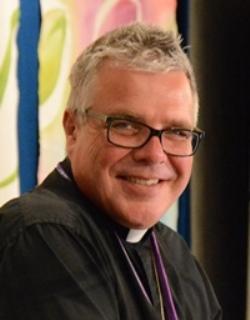This past fall, our church began a four year deep dive into some of our primary Christian faith practices. Our National Bishop invited us to join her in a new four-year emphasis on Living our Faith, as together we pray, read, worship and love. From September 2019 until September 2020, ELCIC members were invited to join in a year of prayer. Little did we know what that might mean for us as the early spring of 2020 unfolded.
The last public worship service I attended was on March 15, 2020. It was during a joint meeting of the ELCIC National Church Council and the Anglican Church of Canada Council of General Synod. I have no idea whether or not in-person worship will be a possibility for us by the time you read these words in early August.
My spiritual life has been sustained by prayers and worship that are both private and public. In private prayer I feel an intimate and close relationship with God, much like a child to a parent. When I pray and worship in public, I come to God as part of a community, the communion of saints both here and beyond. I am but one voice in the timeless prayer of the ages! Both are enriching but in very different ways. I need them both.
Here’s the thing. I was not surprised to find that my private prayer life has been enriched during these months of lock-down and physical distancing. I expected and hoped that might be the case. Where I have been surprised, however, is by the ways that public prayer and worship, have not only been possible, but perhaps even enriched and enhanced during these strange days where we cannot physically congregate as church.
It has been an absolute delight to share in prayer and worship with so many of our congregations, pastors and deacons over these months. Those experiences have all been mediated in some form; some high tech and others low tech. I’ve experienced livestreams, pre-recorded video, audio feeds, printed prayers and sermons; I’ve worshiped and prayed with individuals over the telephone. These experiences are surely not the same as coming together to pray and worship “in-person” with flesh and blood brothers and sisters. But they are certainly “real” experiences of communal prayer and worship. They are not “virtual” as the word is often used; as being somehow fake or less than authentic. They are very real, very authentic; albeit mediated in some form.
By most accounts, and I have been checking in with our rostered leaders regularly throughout this time of pandemic, we are connecting with more people, and in more ways, than was the case before the down. More people are gathering and connecting for worship, bible study, prayer, conversation and fellowship.
Bishop Susan’s call to prayer has surely been answered within the life of our church, but in ways that none of us would have ever imagined when it was issued. Whenever we get back to what we once considered “normal” – and we now know that it will be anything but normal – we must continue to practice and build upon all that we have learned. In the midst of circumstances that are simply awful, we have received precious gifts from the Spirit. We dare not squander them.

